The rising cost of fuel, the implementation of Low Traffic Neighbourhoods (LTN) and the desire for a cheaper and greener alternative to running a car are just some of the reasons why the UK is in the midst of what you might call a transport revolution.
Despite supply issues, the pandemic boosted sales of all types of bikes, and the fuel crisis has only served to keep sales on an upward trajectory.
Deloitte projects that between 2020 and 2023, 130 million electric bikes will be sold worldwide – making them the world’s best-selling electric vehicle.
Bike retailers estimate that around 30 per cent of new customers cite rising fuel prices as a factor in their decision to purchase an ebike.
“Our bikes are designed for everyday commuters, and many of them are also replacing car trips,” explains Ardo Kaurit, co-founder and CEO of ebike company Ampler Bikes.
“Some do report selling their car after getting an ebike. The cost of driving is one factor, but more and more people also take the environmental aspect into consideration.”
For many commuters and small-business owners, the thought of ditching the car or van and choosing pedal power might feel like a big leap, but the testimonies of those who’ve done it and thrived may help persuade them.
The cash converter
Darren Snooks, 36, from Harrow switched from driving to work in Hayes, Middlesex, and back – an 11-mile round trip – to riding his daily commute.

“I drove every day for years, then switched to riding a moped on and off, but finally I swapped completely to cycling on a cyclocross bike,” says Darren.
With fuel prices reaching £2 per litre earlier this year – putting the average cost of filling a medium tank at a staggering £100 – Darren couldn’t have timed his transition better.
By switching to a bike for all his local errands and journeys, as well as cycling to work, Darren estimates he’s saving around £150 a month on fuel and running costs.
“I’m also cycling with my kids at weekends to their football matches – encouraging them to ride and getting some miles under the belt myself.”
Of course, it’s not without its challenges and Darren is keen to point out that potential car-to-bike swappers should do their homework and make sure they’re kitted out for bad weather.
“I rode into work all through winter too. My workmates thought I was crackers, but if you buy the right wet-weather clothing, get decent bike lights and plan your route properly it’s really no great hardship.”
Along with his fuel-cost savings of around £1,800 per year, Darren is keen to flag up the fitness benefits that come with replacing the car with a bike for commuting.
“I’ll go to the gym every morning then ride into work and I feel great. I love whizzing through the school-run traffic jams and getting to work in a good frame of mind.”
Darren’s 11-mile round trip each day is only half the average commuting distance in the UK (23 miles is the average round trip, while 14 per cent of commuters travel over 42 miles a day).
But as the cycle-to-commute movement gains momentum, cycling promotors are offering drivers a means of ditching the car for longer journeys, too.
In Coventry, for example, drivers of older cars are being urged to consider swapping them for a brand new bicycle or ebike under a pioneering new scheme.
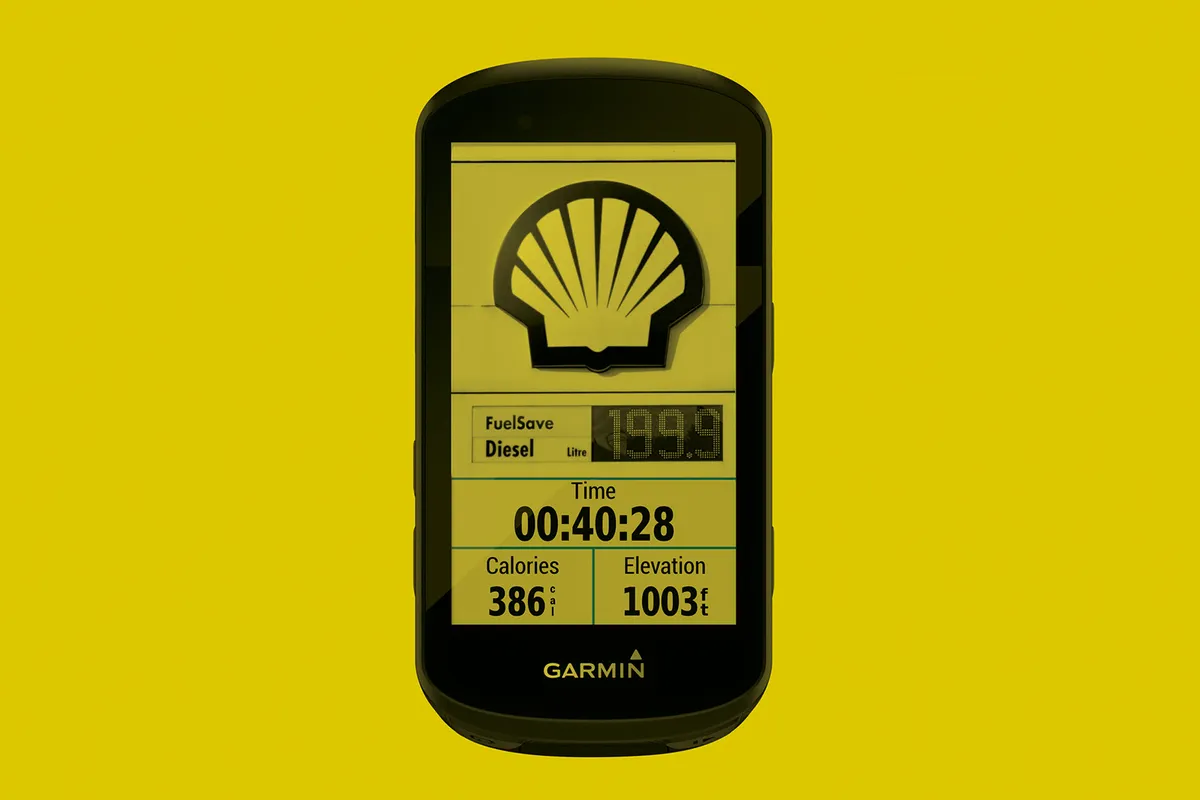
Commuters with high-polluting petrol or diesel cars can get £3,000 worth of ‘mobility credits’ that could be spent on more environmentally friendly travel including public transport, taxis, car hire or bike hire.
“We’ll scrap your old polluting car, you can get a quality bike you can keep, and still have some credits left over for other journeys by public transport or car club when you need to,” explains Adam Tranter, the former Coventry Bicycle Mayor and now cycling and walking commissioner for the West Midlands Combined Authority.
“This scheme has helped us to better understand what works well and what maybe does not when it comes to encouraging people to use more sustainable transport.”
The cargo community pioneer
Alix Stredwick created CarryMe Bikes, a social enterprise designed to help families and businesses use e-cargo bikes in their everyday lives.
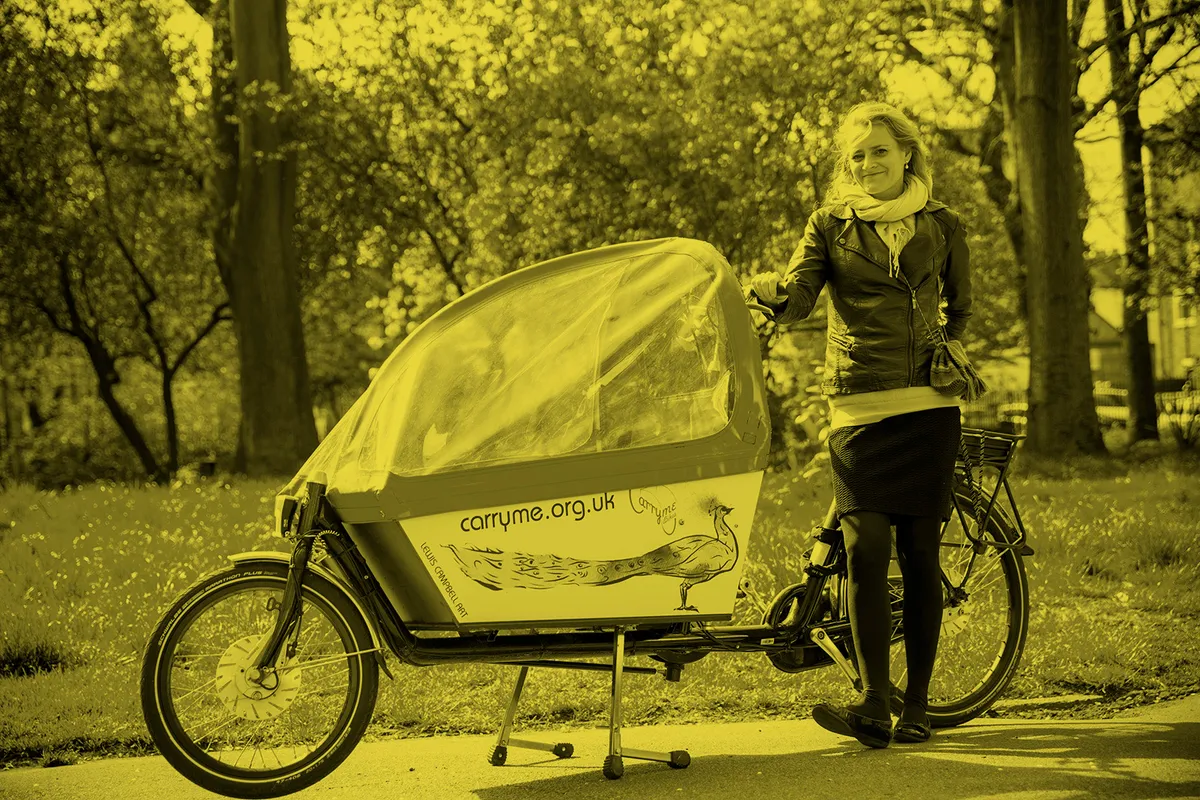
“I used to work in transport planning for my local council and noticed this gap in policy whereby lots of people were getting into cycling, but when they started having children, they stopped because of all the equipment that comes with kids, plus the safety concerns when you’ve got more than one child.”
After seeing cargo bikes and bikes with trailers in use during a visit to Cambridge, Alix returned to east London with the seed of an idea.
“I applied for some TfL funding for a demo project offering cargo bikes for sale or hire. That took off. It mushroomed into a community project thanks to more funding.”
With the help of several local mums, keen to find a better way of getting through the school run, Alix developed a community cargo bikes library.
“Now, we’ve developed that further so that we have the business side, CarryMe, which is leasing and selling cargo bikes and trikes, and offering repairs and maintenance.
"And then we still have the community events side of things where we run projects targeted around specific aspects, such as helping low-income families with their needs or helping families to find the right bicycle kit for transporting their children.”
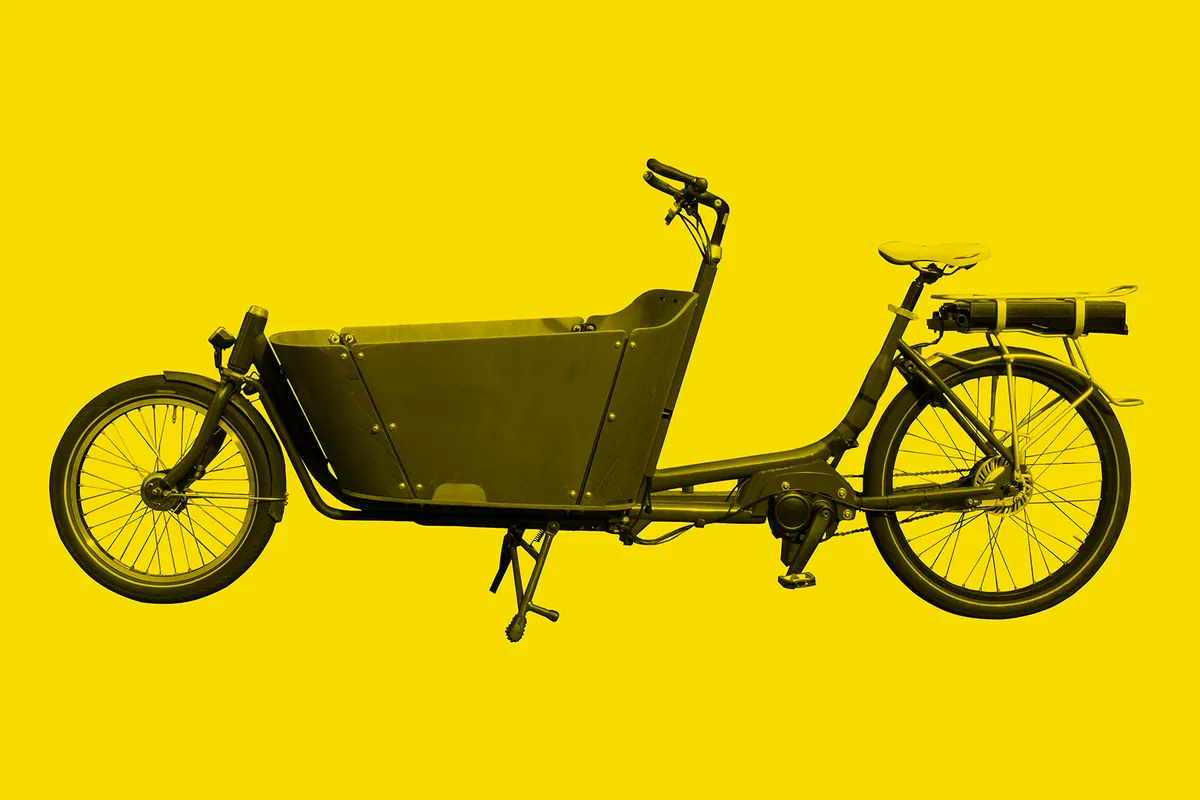
During the pandemic, a lot more people turned to cycling as a form of exercise but also to get from A to B, rather than taking public transport.
“So, we changed our usual hire terms, which were around three days, to one to two weeks, on our customers’ suggestion that they would prefer to keep their bikes for longer.
"We also implemented a free bike-delivery service to the customer’s home so they didn’t need to collect it at the shop.”
Alix says her cargo bike earns its keep with the day-to-day chores.
“For trips to the shops, the garden centre, anything that requires some heavy lifting, they’re perfect. Storage and parking are the barriers to greater e-cargo bike usage, though,” says Alix.
“Without more safe lock-up facilities on roads and housing estates, we’re preventing thousands more people from converting to cargo bikes.”
The progressive plumber
London-based boiler fitter and plumber Shane Topley was inspired to test out an e-cargo bike during the first lockdown. Now it’s replaced the van as his main business vehicle.

“I expected to do something between 50 and 60 per cent of my business by bicycle,” says Shane. “But it’s closer to 95 to 98 per cent.”
Shane first considered swapping the van for a cargo bike as traffic disappeared from the roads during the first Covid-19 lockdown.
“I was sitting on my balcony and I could smell the trees because there was so little traffic polluting the roads. That’s when I thought it was time for me to think of another way. It led me into using cargo bikes as an experiment.”
Aside from a few adjustments to his work pattern, Shane found that switching from a van to a Tern electric cargo bike took relatively little effort, but has brought a wealth of rewards.
“I have to plan my day a little bit more carefully, which isn’t such a bad thing, but I can’t just have everything to hand. On days when I’m doing boiler servicing, I’ll try to do four or five services.
“It means a little bit more running back and forth for equipment, but it brings me home for lunch!”
Since getting his first ebike, Shane has bought a second and used the van on only two occasions.
“Both times, I’ve been seriously disappointed because one time it took me 40 minutes to find somewhere to park, and the other time it was wall-to-wall traffic. I feel rather smug as I cruise down past all those nose-to-tail cars.”
But there are factors to consider before making the switch, he points out.
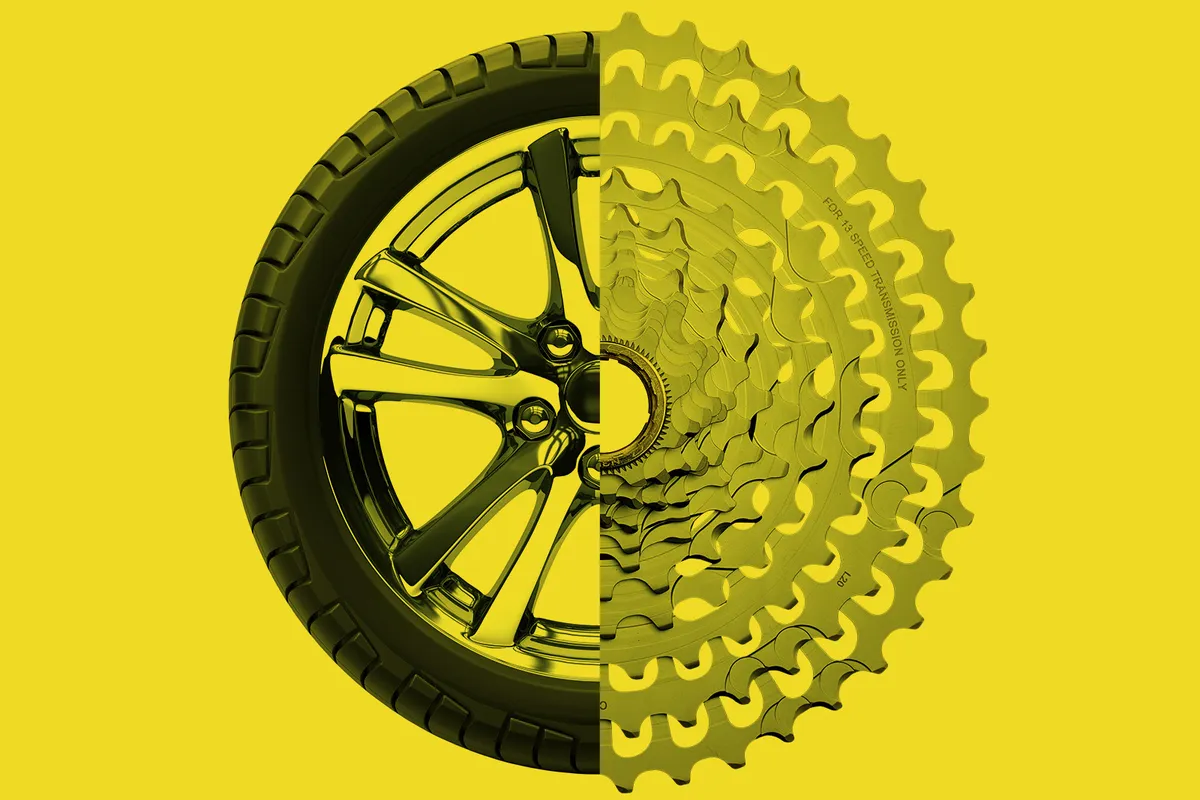
“Storage is a major issue for many people, especially those using cargo bikes in cities. I re-configured my van at first to store the Tern off the road, overnight. But I also rent a garage from the council where I keep my Urban Arrow. I wouldn’t feel comfortable leaving that on the street at night."
“Getting one insured can be a challenge too,” says Shane.
“Because the garage I use isn’t on my property, the insurance firms are very reluctant to insure it. One did consider it, but the premium was ridiculously expensive.
“I also have to charge the batteries every day, but I have no fuel costs, no parking charges and when I’m out on a job I can usually get the bike in a secure place on the property. If I can’t, I lock it securely and cover it to deter thieves.”
Shane started with CarryMe Bikes and, after his experience, suggests you start with a ‘loan deal’ and get good advice.
“They [CarryMe Bikes] were fantastic. The founder spoke to me for about an hour before even suggesting what bike I hire from her. I want to keep the air clean. We should all do as much as we can.”
The sustainability business owner
Gareth Kane, 51, from Newcastle-upon-Tyne, has switched from a seven-seater diesel Ford S-Max to a Tern GSD cargo bike and hasn’t looked back.
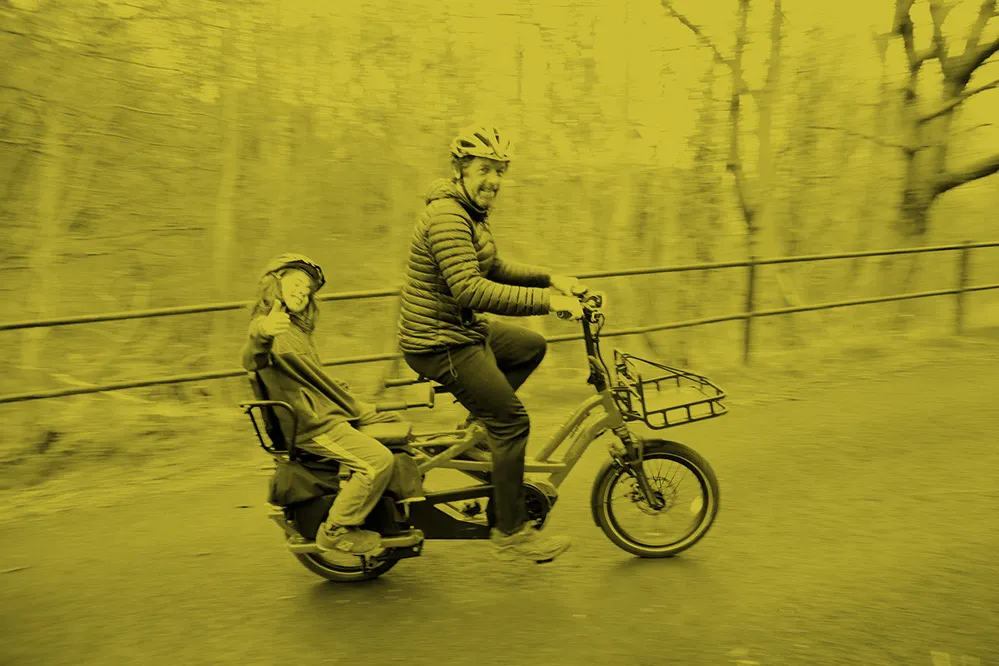
“When I got the S-Max, our three kids were still of child-booster-seat age. We felt we needed the width across the back seats as we had a grandparent or extra kid to transport at times too. It was also very useful if you needed to take something to the dump.”
But as his children have got older, Gareth has re-examined his car usage and found life has taken a new turn thanks to the investment in the Tern.
“It got to a point where I was only driving a couple of times a week on average, taking the youngest child to football training. Shifting two tonnes of car to move two people a couple of miles just seemed wrong and I hated squeezing my big car in and out of car parks not designed for the MPV/SUVs that dominate.”
Having set up a sustainability business helping others to find a way of reducing their carbon footprint, this was the perfect way to practise what he was preaching.
“As someone who spends their entire life encouraging others to go green, I realised I had to make more of an effort.”
Unlike some e-cargo bikes, the Tern is the same length as a regular bike, but can fit two people or a huge load.
“The pedal-assist electric motor means that it will take these loads up hills no sweat – literally. Even after what would be a tough 45-mile ride on a normal bike, I was perspiration-free on this after a 14 per cent slope. It’s like you always have a tailwind.”
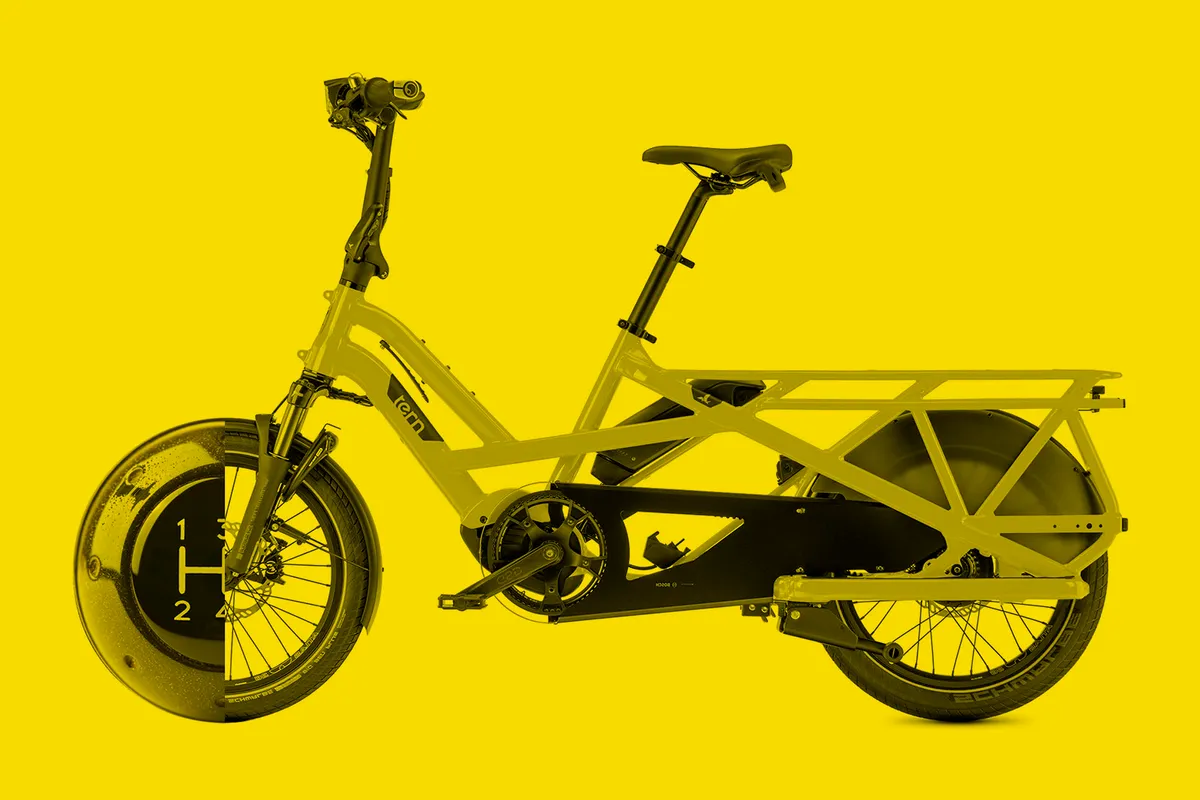
A recent survey by car research and consumer shopping website, Car Gurus found that 23 per cent of drivers wouldn’t have bought their current car in hindsight.
They would have chosen something cheaper to run instead, while almost a third say they’d have purchased an electric vehicle (EV) or no car at all.
Gareth estimates that for 10 to 15 per cent of the cost of an EV – which was his other consideration – and a much shorter waiting list, he’s managing to cover the vast majority of his transport needs with the cargo bike. So, will he get rid of the S-Max?
“The end date is now under serious discussion. We’re planning to join a car club for family outings, which will tick off much of the remainder needed,” he says.
He points out that the low level of mileage for which he now uses a vehicle wouldn’t justify switching to an EV on economic grounds (or carbon ones) either.
“Also, the waiting list for EVs is four times as long as the three-month wait I had for the cargo bike.”
Gareth is convinced that many more people will make the switch from cars to cargo bikes, but insists it requires a push from policymakers, too.
“It will take time for the supporting environment to catch up – and some cycle infrastructure isn’t cargo-bike friendly.
"But as I potter about on my Tabasco Red mean machine, I’ll be making a statement about the future – and enjoying the freedom the GSD gives me.”
